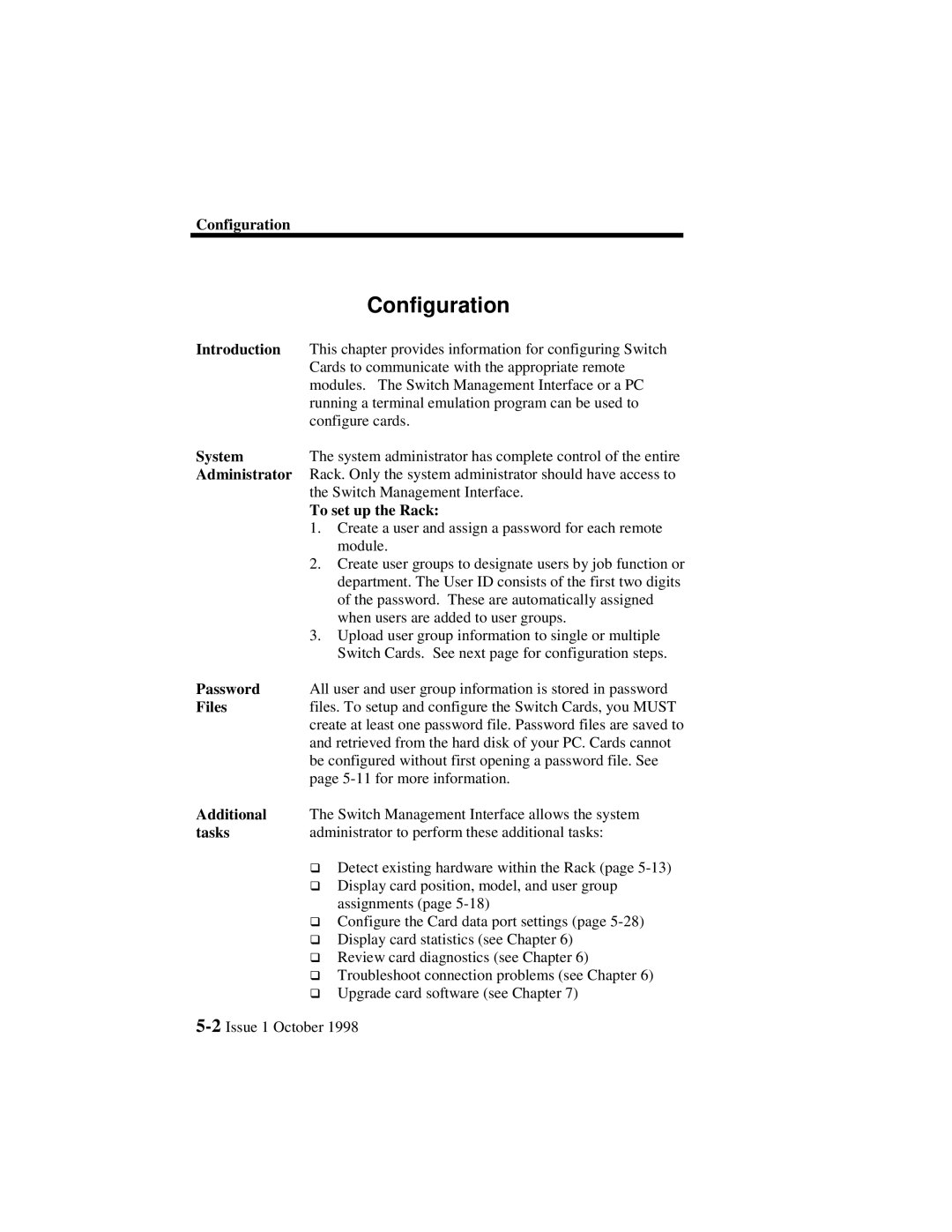Configuration
| Configuration |
Introduction | This chapter provides information for configuring Switch |
| Cards to communicate with the appropriate remote |
| modules. The Switch Management Interface or a PC |
| running a terminal emulation program can be used to |
| configure cards. |
System | The system administrator has complete control of the entire |
Administrator | Rack. Only the system administrator should have access to |
| the Switch Management Interface. |
| To set up the Rack: |
| 1. Create a user and assign a password for each remote |
| module. |
| 2. Create user groups to designate users by job function or |
| department. The User ID consists of the first two digits |
| of the password. These are automatically assigned |
| when users are added to user groups. |
| 3. Upload user group information to single or multiple |
| Switch Cards. See next page for configuration steps. |
Password | All user and user group information is stored in password |
Files | files. To setup and configure the Switch Cards, you MUST |
| create at least one password file. Password files are saved to |
| and retrieved from the hard disk of your PC. Cards cannot |
| be configured without first opening a password file. See |
| page |
Additional | The Switch Management Interface allows the system |
tasks | administrator to perform these additional tasks: |
Detect existing hardware within the Rack (page
Configure the Card data port settings (page
Review card diagnostics (see Chapter 6)
qTroubleshoot connection problems (see Chapter 6) Upgrade card software (see Chapter 7)
